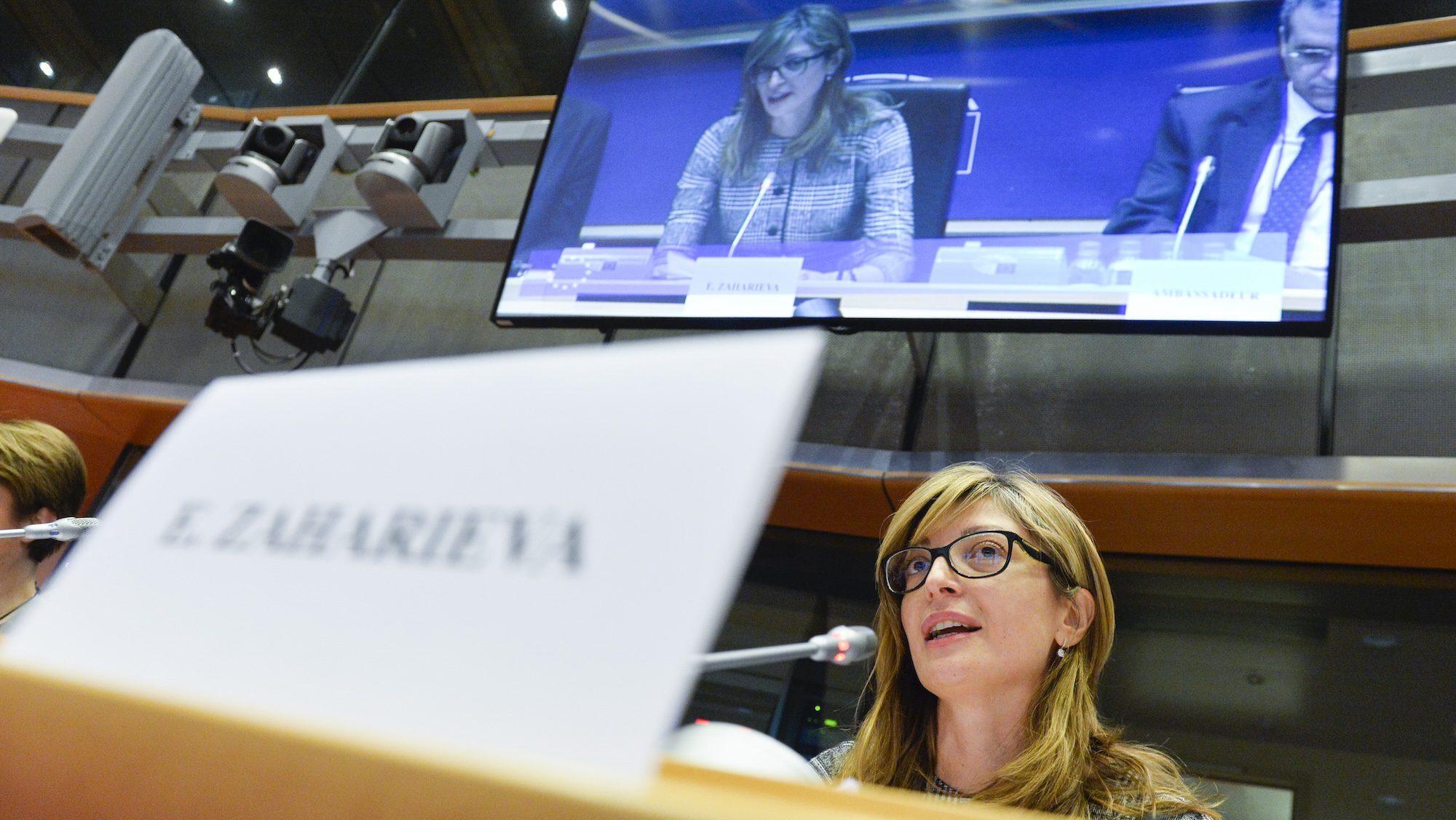
Ekaterina Zaharieva.
Photo: Benoit Bourgeois © European Union 2018 – Source: EP
European Commission President Ursula von der Leyen’s pursuit of elusive gender balance in the next cabinet is more important to her, it seems, than the rule of law, integrity, and even her own reputation.
Von der Leyen asked Bulgaria to formally nominate its female candidate in preference to its male applicant, despite the former’s alleged involvement in a major corruption scandal just six years ago. Undoubtedly, this will be brought up against her in the years ahead if she gets into office.
As we have covered extensively before, the gender of future commissioners appears to take priority over competence in the eyes of von der Leyen. She wants a gender-balanced Commission so badly that she demanded all countries put forward two names instead of their usual one—one male and one female applicant—so that she could handpick a ‘representative’ mix.
“Instead, she got middle fingers,” one unnamed diplomat described the embarrassing situation aptly since all but one country—Bulgaria—simply ignored the request and selected whoever they saw most fit.
This resulted in the Commission having nine female and 16 male candidates—not counting von der Leyen herself—but including the two women who were put up for the role after she succeeded in blackmailing Romania and Slovenia into dropping their male choices to stand more of a chance at getting better portfolios.
Most recently, von der Leyen finally managed to push up her female candidate numbers into double digits. On Monday, September 9th, Bulgaria also finalized its selection based on the Commission president’s request to withdraw the nomination of former environment minister Julian Popov in favor of their female nominee, former justice and foreign minister Ekaterina Zaharieva from the center-right GERB (EPP) party.
Naturally, Popov’s liberal allies from Renew were quick to come out against Zaharieva after the announcement, reminding von der Leyen of the candidate’s uncomfortable past.
In 2018, Zaharieva was accused by a former employee-turned-whistleblower of running a ‘cash-for-passports’ scam together with Bulgaria’s deputy prime minister and a GERB MEP, selling “thousands” of passports to foreigners and granting them visa-free travel across the European Union. The whistleblower, Katya Mateva, was fired by Zaharieva two years prior to coming forward, allegedly for refusing to participate in the operation.
Although at the time, the scandal seemed powerful enough to potentially topple the entire GERB government, the case simply died out without anyone being charged, and the implicated officials continue to deny involvement to this day. But it’s telling that Prime Minister Borissov closed down the state agency that was supposedly used to administer the scam right after the scandal broke—all while maintaining that he did it solely for efficiency reasons.
Now, six years on, the story came back to haunt Zaharieva, and by proxy, von der Leyen. “Given that one of the top priorities of [von der Leyen] is rule of law,” Bulgarian Renew MEP Nikola Minchev commented, the old accusation “casts a shadow over” Zaharieva’s candidacy.
The revived scandal, among others, might also be the reason why von der Leyen decided to postpone her meeting with the leaders of the European parliamentary groups, initially scheduled for Wednesday, during which she is supposed to set out her plan to distribute the Commission portfolios between the candidates.
All candidates will go through parliamentary hearings in the coming weeks, trying to obtain MEPs’ trust for their final confirmation, and revived allegations regarding Zaharieva will undoubtedly come into focus. Still, one can expect von der Leyen to try saving her seat, because the humiliation would be even greater if she was forced to drop her in favor of the male candidate Popov—especially after all this undemocratic pressure for gender balance.
